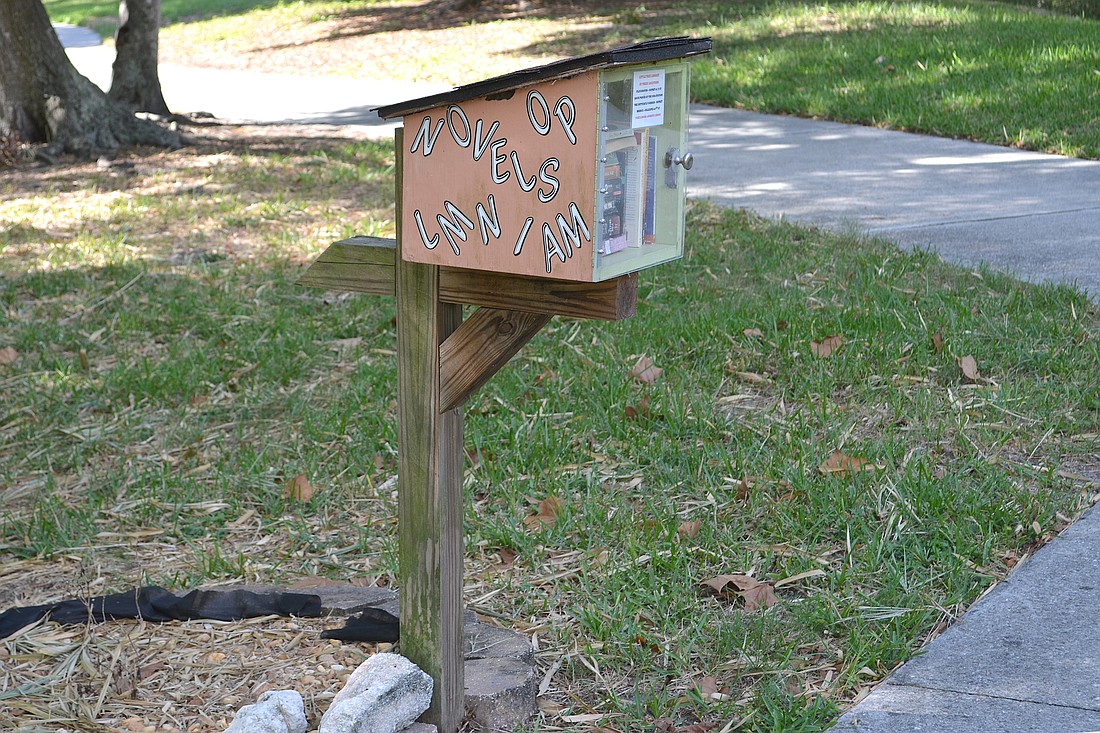- May 10, 2025
-
-
Loading

Loading

Two decades of a simmering neighborhood squabble between two competing neighborhood groups came to a rolling boil at the Oct. 16 Sarasota City Commission meeting over what would otherwise be a typically routine consent agenda item.
Pulled from the consent agenda was the matter of $34,106 in neighborhood partnership grants, which became a 90-minute discussion with members of two Gillespie Park neighborhood associations debating the validity of the process under which the city determined the allocation of just less than $2,000, leaving city commissioners to determine how to fairly address the competing interests.
In the end, commissioners voted to allocate the remainder of the grants, for which the neighborhood associations are required to apply in meticulous detail, while holding out the Gillespie Park share, until both sides can come to an agreement, or perhaps even merge after years of infighting between the 40-year-old group, the Original Gillespie Park Neighborhood Association, Est. 1983, Inc., and the 20-year-old rival group, the Gillespie Park Neighborhood Association.
The idea of a merger elicited no small degree of skepticism from commissioners.
While suggesting a motion to hold the Gillespie Park allocation until the next grant cycle in March, Mayor Kyle Battie likened it to “kicking the can down the road.”
“With all due respect, you can have a fight next cycle because if you have two submittals and we bring it to you, you're going to have the same issue and you'll have to decide which gets the grant,” said City Manager Marlon Brown.
“That's why we strongly urge them to merge,” said Commissioner Erik Arroyo.
To that, Battie said, “Yeah, right.”
The two associations were instructed by Brown to work together to draft the grant proposal. Members of the older association — the Original Gillespie Park Neighborhood Association — charged that the leadership of the upstart association, the Gillespie Park Neighborhood Association, cut them out of the decision process. With the grant money, it proposes replacing the three wooden Little Free Libraries in the neighborhood with new models made of durable, low-maintenance composite material.
Currently, Joy McIntosh told commissioners, the existing free book-swapping boxes are in need of constant maintenance, all performed to date by volunteers with no construction expertise or funding for materials.
Members of the Original Gillespie Park Neighborhood Association said the Little Free Libraries are in fine shape and the $2,000 can be better used elsewhere. More than the book boxes themselves, they argued that the process was somewhat less than democratic.
“This boils down to nobody is against Little Free Libraries,” said Gillespie Park resident Derin Parks. “We have three in our park. They’re great. They serve the community. They don't need replacement. They just need some paint and a little bit of repair. We don't need grant money for that. What we need is a consensus on what we can do to move Gillespie Park forward.”
Any form of consensus has been hard to come by, but the leaders of the newer Gillespie Park Neighborhood Association claimed it isn’t for lack of trying.
“The Gillespie Park Neighborhood Association communicates with its residents in several ways,” said Linda Holland, who helped organize the original association in 1983 before splitting off in the early 2000s to form the Gillespie Park Neighborhood Association. “Emails inviting residents to meetings are sent to over 135 recipients each month. Also, meeting updates and other information of interest to neighbors is provided by email on a regular basis. This information is also provided on the Gillespie Park Facebook page and the Nextdoor neighborhood app. Our meetings are open, informative and beneficial to our residents.”
Not so much, said neighborhood resident Kimiko Ogg, who said the members of the Original Gillespie Park Neighborhood Association were cut out of the decision process for the grant application, as previously dictated in a directive from Brown that the two groups work to find consensus.
She charged that Holland submitted the grant application without input from the Original Gillespie Park Neighborhood Association.
“We had an email submitted by Linda from the other association stating that she was going to submit to get the grant for these libraries,” Ogg said. “We tried to reach out and discuss that to see if we could come up with a better idea to no avail, so we did not have a consensus on agreeing to submit for grant application for these libraries. We had direction come down from the city that said that on many issues brought to the forefront in Gillespie Park that both associations need to come to a consensus before asking the city to approve them, and we just feel that we haven't had that treatment.”
The lingering division between the two groups resulted in no grant for now for Gillespie Park as Commissioner Jen Ahearn-Koch’s motion to approve the allocation, seconded by Vice Mayor Liz Alpert, failing 3-2 with Arroyo, Alpert and Debbie Trice opposed.
“I seconded it,” Alpert clarified before the vote, “but I don’t have to support it.”
What she does support is putting the onus on Gillespie Park residents to come together, hold an election and create a single neighborhood association.
Otherwise, said Arroyo, “There's no incentive to work together and then we're back here in a year doing the same thing.”
Correction: This article has been updated throughout to clarify that the Original Gillespie Park Neighborhood Association, Est. 1983, Inc. is the older of the two rival neighborhood organizations and to correct the spelling of Linda Holland's name.